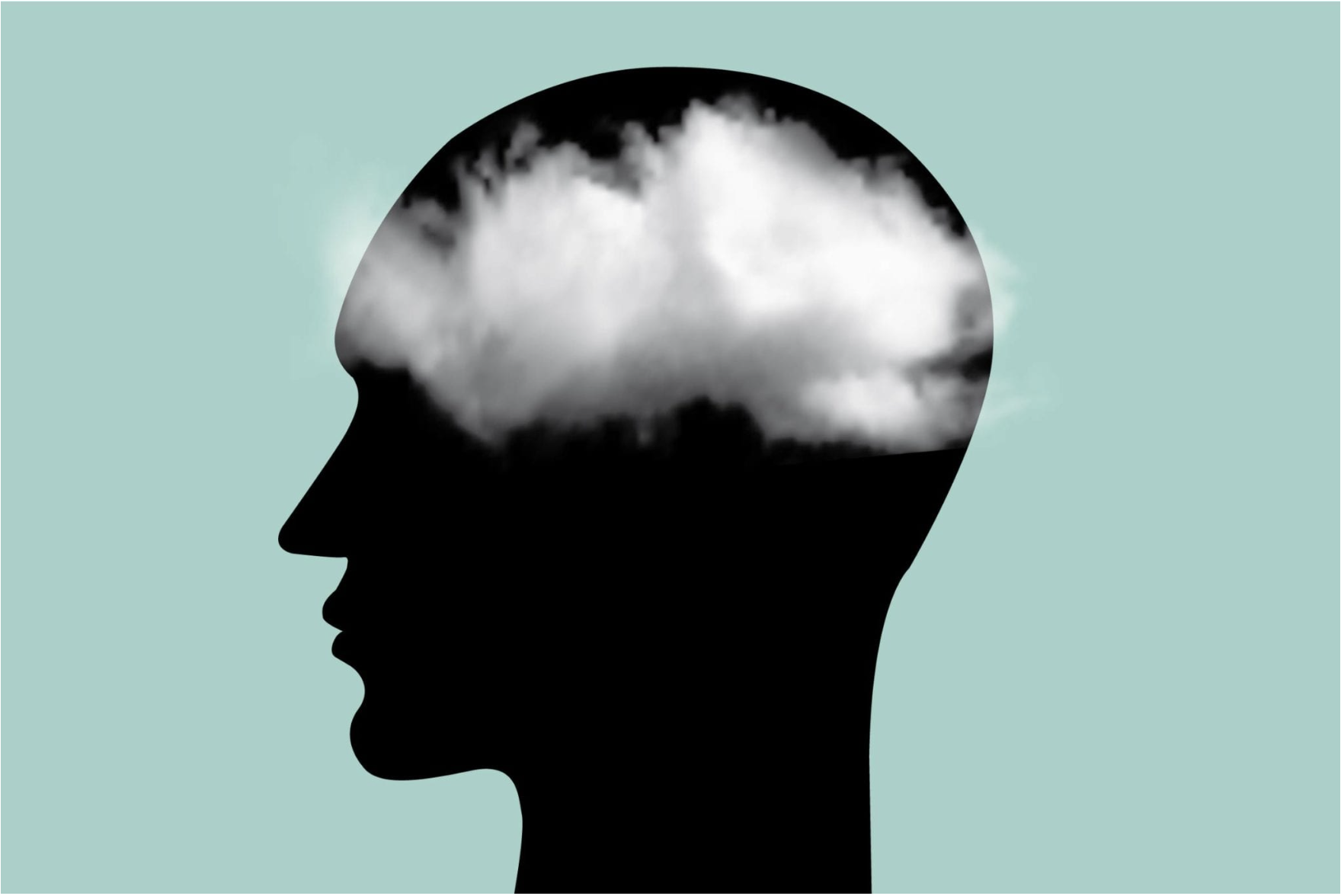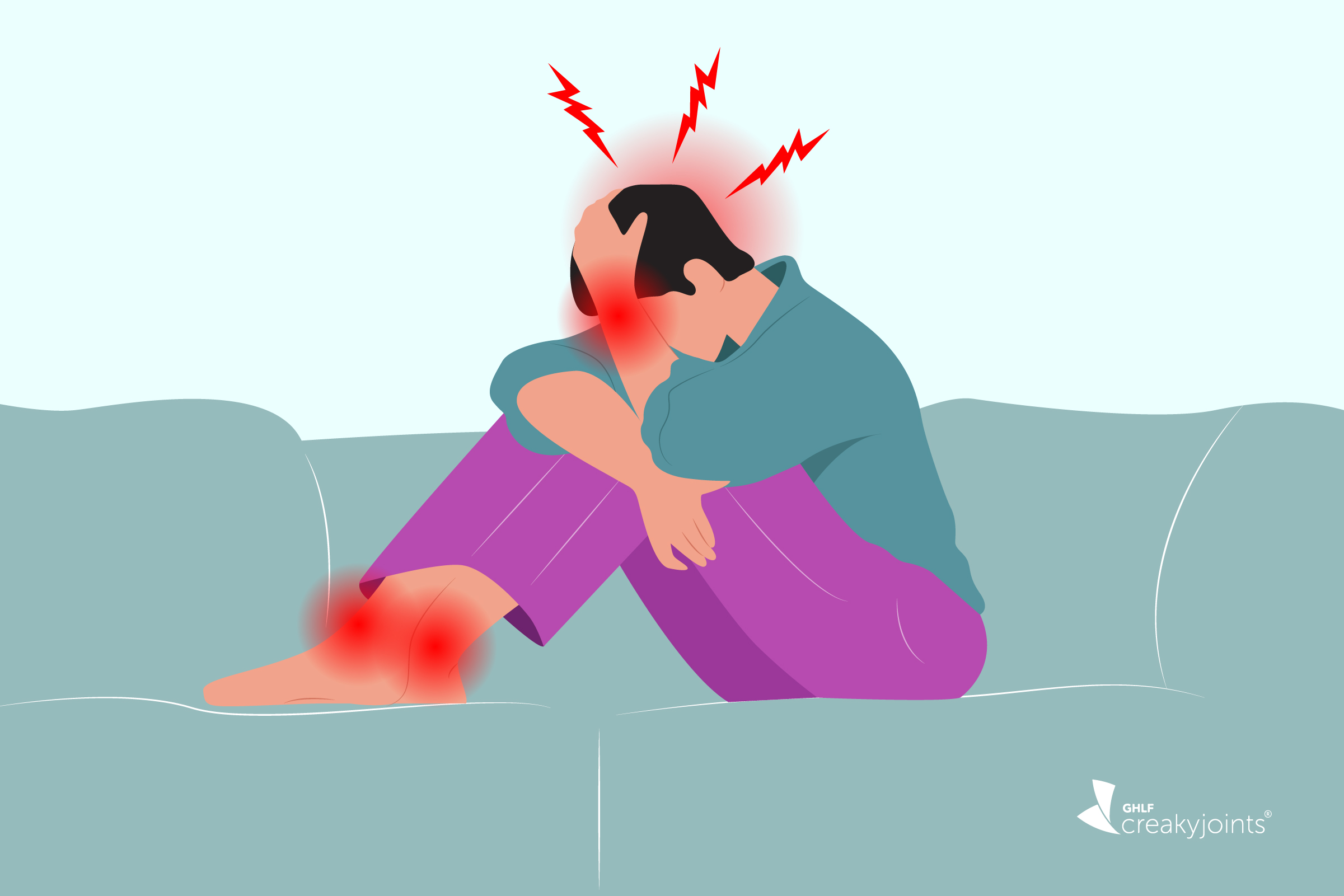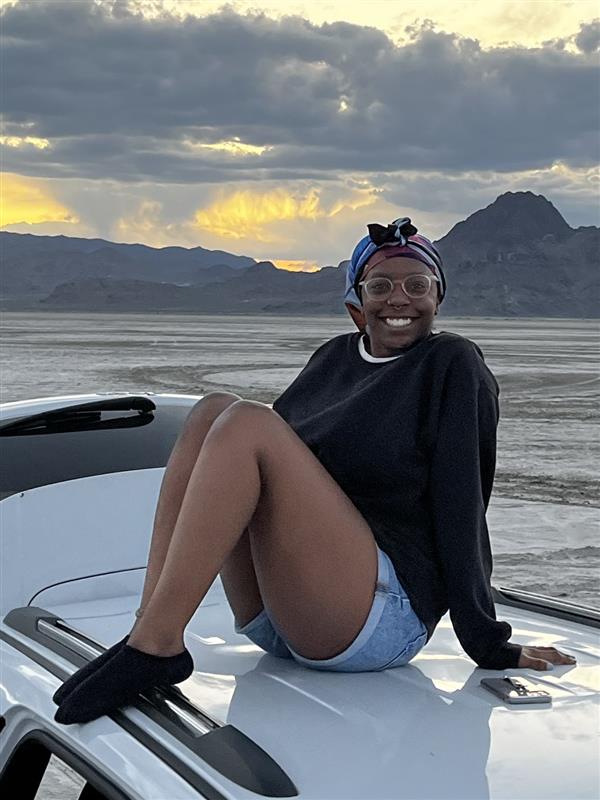Discover the symptoms of brain fog linked to migraine and learn coping strategies to manage cognitive challenges.
Valerie’s Journey: Celebrating Strength and Resilience
Valerie’s Journey: Celebrating Strength and Resilience
In honor of Hispanic Heritage Month, we highlight the resilience and advocacy of Valerie, a beacon of hope in our patient community.
October 2, 2023
J P Summers

It is an important part of our organization to share different patient’s perspectives to educate and encourage others to be their own voice as they navigate through a new diagnosis or seek a different treatment for a chronic condition that has become difficult to manage.
As we celebrate this year’s Hispanic Heritage Month, we wanted to highlight one of our 50-State Network members, Valerie Peña-Alfaro, a wife, mom of two, and grandparent who suddenly found herself facing several forms of diversity while searching for answers to her debilitating symptoms that went undiagnosed for a decade.
When Life Unexpectedly Changes Overnight
As a former health care employee, Valerie spent some time helping patients advocate for themselves. However, she never imagined being on the other side of the spectrum, seeking a solution.
In 2012, Valerie awoke with sudden vertigo, feeling as if the room was spinning and she might faint. The onset of symptoms was frightening for this Texas native, especially since she had felt perfectly fine in the preceding months.
“I knew what I was experiencing was vestibular related, but had no idea where to start searching for answers,” she says.
This was only the beginning of Valerie’s patient journey, navigating life with a chronic condition that seemed to have no solution in sight.
The Reality of Being Repeatedly Misdiagnosed
In a span of 10 years, Valerie visited 20 medical providers outside of the emergency room.
Her initial diagnosis was a severe sinus condition, leading to surgery on her ENT’s recommendation. The next medical provider assumed it was heart-related or possibly Meniere’s or Lyme disease. At one point, a physician bluntly told her to accept this as her life.
Others blamed her Hispanic culture, citing that the ethnic foods were the primary cause of her health problems. One specialist told her that if she stopped eating “her people’s food,” she wouldn’t have these medical problems. Another practitioner advised her to start eating food outside the Hispanic culture to feel better.
“It was a very dismissive appointment,” recalls Valerie. “I was angry and then sobbed in my vehicle all the way home. It bothered me that someone would actually use my own culture against me during an appointment.”
The stress of being passed around from one medical provider to another combined with prejudice due to her Hispanic heritage deeply impacted Valerie’s mental state. The mother of two was nearly broken, not to mention she had now developed white coat syndrome, when patients experience heightened anxiety and higher blood pressure in medical settings. Nonetheless, Valerie was not ready to give up.
“I went in with imaginary armor. Ready to fight for answers,” she says.
Driven by frustration and anger, Valerie disregarded the opinions of these doctors and explored explanations on her own. Her persistence finally led her to a proper diagnosis: vestibular migraine and occipital neuralgia.
“I was robbed of memories and experiences with loved ones,” she says. “That is time I’ll never get back, but I got answers.”
There was great relief with the diagnosis, but all Valerie could think about was the years that had gone by while receiving the first successful treatment to lessen the symptoms.
Hope During Difficult Times
“It is easy to lose hope during a time when you feel like you are screaming, and no one is listening,” says Valerie. She held the belief that her health status would improve, and this propelled Valerie past each challenging medical hurdle.
She drew emotional comfort from educating herself about her symptoms. This knowledge empowered Valerie to pursue the answers needed to find an effective treatment. Reading articles from trusted resources like CreakyJoints, about others facing similar situations and emerging with a better quality of life, fueled her hope. She believed that she, too, would see improvement in her health.
Cherished Times with Loved Ones While Chronically Ill
Valerie, like many others in the chronic illness community, leans on family and friends not only for help with daily activities but also overall mental and emotional support.
She finds joy in her role as a grandparent, even when her health is not at its best. One of Valerie’s biggest victories since finding a treatment regimen for her debilitating symptoms was taking her oldest grandchild shopping by herself for the first time in eight years.
“Each moment with my grandchildren is precious,” she says. “Finally, having the ability to spend one-on-one time with my granddaughter made both of us happy.”
Resources and Translation Services for the Spanish-Speaking Community
During her time working in the health care system, and now as a patient in the system, Valerie has noticed many disparities within the Hispanic culture.
“For people going through the health care system, there is already so much to contend with. Fear, lack of understanding, trying to get answers, all while trying to get to the right doctors,” she says. “Our community deserves access to health care and affordability of medications. But most importantly, they should be able to understand the information being presented to them, so they can make knowledgeable and confident decisions toward their health.”
The barrier to accessing appropriate medical care often arises from inadequate communication between the patient and medical provider, particularly if the individual cannot speak the same language or comprehend the the information given. Providing the right language resources and translation services could greatly enhance a person’s health outcomes.
Advice for Those with Similar Challenges
“The most important thing is to listen to your instinct,” says Valerie. “Your gut tells you when something is or isn’t right.”
While Valerie views her doctors as partners in her medical journey, she also has learned not to just accept a diagnosis blindly without seeking her own answers. She makes it clear to her doctors that she wants to be an active participant in her own health, researching her conditions and coming to appointments with questions.
Valerie also made the decision early on not to be afraid of upsetting her doctor. She realized that it is okay to get a second opinion or part ways with a medical provider if they are not the right fit. She refuses to feel guilty about such decision.
Choosing to Advocate for Yourself
At first, the decision to become an advocate was not easy for Valerie. “In Hispanic culture, we are often told not to discuss our problems. It is viewed as a sign of weakness. It’s frowned upon,” she says. “We are very private people for the most part.”
However, the thought of someone else experiencing a decade-long journey to diagnosis made Valerie made want to share her story and help others.
“The Hispanic community expects you to not complain about personal issues, especially health-related ones. It is like carrying a badge of honor if you never speak about private matters,” says Valerie. “Let’s carry the badge of honor differently. Be vulnerable. Be honest about your medical situation. Open the doors to talk about difficult things because we are never going to grow as a community from these experiences if we don’t speak about our personal battles.”
Valerie recognizes the power of connecting with someone who shares your background, appearance, and language.
“Let’s change the perspective and not be afraid to ask for help instead of fear from being reprimanded for speaking up,” she says. “Going through chronic illness can be very lonely and isolating as it is. No one should have to suffer in silence.”
Your Patient Story Matters
Many people cautioned Valerie that if she made her illness her identity, she would get lost and never recover. Yet Valerie knows better. “Once you have accepted your condition, you are able to educate yourself about the health situation you are dealing with,” she says. “The more you know about your diagnosis, the more prepared you are when you are sitting in front of your providers and the better your consultation will turn out during that appointment.”
Valerie’s parting message for the 50-State Network community and all those reading her story is one of hope and resilience. After a diagnosis, there is still hope, she emphasizes. Always share your patient experiences; more people listen than you realize.
Want to Get More Involved with Patient Advocacy?
The 50-State Network is the grassroots advocacy arm of CreakyJoints and the Global Healthy Living Foundation, composed of patients with chronic illness who are trained as health care activists to proactively connect with local, state, and federal health policy stakeholders to share their perspectives and influence change. If you want to effect change and make healthcare more affordable and accessible to patients with chronic illness, learn more here.
SUBSCRIBE TO GHLF
RELATED POST AND PAGES
_
Was this article helpful?
YesNo



